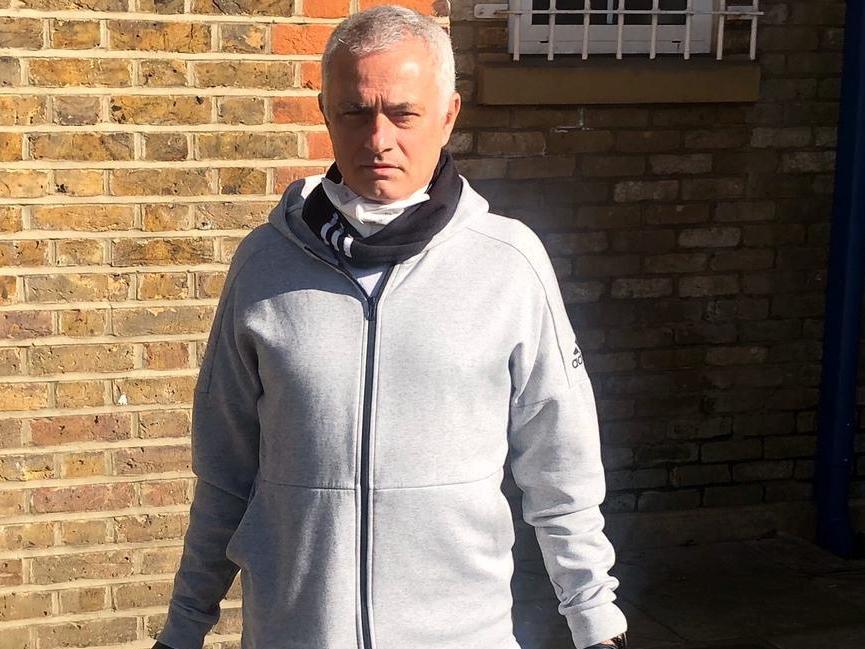Coronavirus: How even the smallest of gestures are keeping the spirit of sport alive
A collective effort to support those suffering can prolong the joy and positivity sport always provided – even in its absence

Your support helps us to tell the story
From reproductive rights to climate change to Big Tech, The Independent is on the ground when the story is developing. Whether it's investigating the financials of Elon Musk's pro-Trump PAC or producing our latest documentary, 'The A Word', which shines a light on the American women fighting for reproductive rights, we know how important it is to parse out the facts from the messaging.
At such a critical moment in US history, we need reporters on the ground. Your donation allows us to keep sending journalists to speak to both sides of the story.
The Independent is trusted by Americans across the entire political spectrum. And unlike many other quality news outlets, we choose not to lock Americans out of our reporting and analysis with paywalls. We believe quality journalism should be available to everyone, paid for by those who can afford it.
Your support makes all the difference.As the lights turned off at stadiums and sports halls across the country, Norwich City, like so many other football clubs, sent out a list to each of its players. On it, there were dozens of phone numbers of elderly and vulnerable supporters in the local area, and each week the first-team squad try and call to check on the fans’ wellbeing. Instead, as the club’s goalkeeper Tim Krul admits, it quickly descends into just “a nice conversation about football”.
It’s a small gesture in the grand scheme of this chastening pandemic, but for those minutes, sport is back again, back to being what it always was: a distraction and an escape. Something which, no matter how briefly, still has the power to steal our mind away from this unfolding tragedy.
Over these past few weeks, as stubbornness faded into alarm and sport into insignificance, it has reflected the best and worst in us all as individuals and a community. We can rest safely assured in the knowledge that whenever crisis strikes, Newcastle owner Mike Ashley will unfailingly ride as the first of the Four Horsemen. And that on a wider scale, sport isn’t safe either from the rogue profiteers, asset strippers and loan sharks - or the neighbour with 17,700 bottles of hand sanitiser stuffed into his garage - who plough on with immunity.
From an administrative standpoint, sport certainly hasn’t covered itself in glory. The International Olympics Committee, despite insisting athletes’ safety was their single greatest priority, spent an age deliberating over the Games’ inevitable postponement, eventually crowbarred into a corner by those federations for whom wellbeing came before the hand-wringing. At home, the impact of allowing the Cheltenham Festival going ahead could yet have much worse consequences than it already has while clubs argue and threaten legal action over promotion and relegation disputes. All the while in Belarus, the first division is continuing with wilful obliviousness.
Yet while sport stopped, the individuals at its centre have still provided a beacon of hope, no matter how flickering under these circumstances. In the past few days, the likes of Pep Guardiola, Lionel Messi, Cristiano Ronaldo and Robert Lewandowski have made seven-figure donations to support medical staff. Of course, when coming from a position of such privilege, it’s easy to scoff. But it’s a desire to help that’s been mirrored down football’s pyramid.
Aston Villa and Burnley are helping to support foodbanks, Sheffield United have donated resources to the NHS, Brighton were the first Premier League club to pledge to pay all its matchday workers and donated 1,000 free tickets to the NHS, while Wolves have bought medical equipment to support local hospitals.
Admittedly, these are still multi-million-pound clubs. It was quickly pointed out that Guardiola had in fact made a donation 20 times greater than Manchester City. Like all of us, they could always do more - In Germany, Bundesliga sides have already pledged to support the lower tiers. But there is at least an ownership and responsibility to support the areas that are their lifeblood. In the absence of any sport actually taking place, at least in some shape and form, clubs are still binding forces in those communities.

At the lower end of the spectrum, where clubs are having to juggle that responsibility with their own survival, the situation is unavoidably bleaker. Barnet chairman Tony Kleanthous was the first to reluctantly lay off his non-playing staff. Several more clubs will soon follow. For some, that financial tightrope could even be one they cannot get back up from. Yet, even then, positivity hasn’t been completely blinkered when players in uncertain financial positions themselves are offering to take pay cuts or wage deferrals to keep members of staff afloat.
The matches have stopped, but in those small ways, sport has kept on going. Whether it be Tyson Fury streaming daily workout videos or a lower-league club in perilous limbo still offering its services to local hospitals. With no end in sight, those small deeds at least bring a glimmer of the hope and joy sport always provided. For every Mike Ashley, there’s a squad of 25 players.
Back in Norwich, Krul has taken to helping his 94-year-old neighbour to get her groceries. “Little effort,” he said. “Great pleasure.”
Join our commenting forum
Join thought-provoking conversations, follow other Independent readers and see their replies
Comments